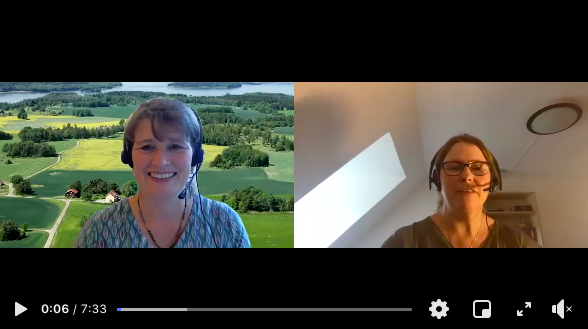Calling All Plant Ecology Papers!

Did you know that Nordic Journal of Botany is a great place to send your plant ecology manuscript? (Just don't forget to follow the submission guidelines, advises the editor-in-chief!)
In this interview, Editor-in-Chief for Plant Ecology Sara Cousins gives some practical tips on submitting papers to NJB, one of four international journals published by the Nordic Society Oikos. She also sends out a call for global research on all aspects of plant ecology: from genes to invasive species to climate change, and more.
“There's so much room for different scopes within plant ecology,” said Cousins, who has interdisciplinary research interests herself as a professor in physical geography and associate professor in plant ecology at Stockholm University. Cousins joined NJB last year to share editorial duties with Torbjörn Tyler (Editor-in Chief for Taxonomy and Evolution), bringing a new emphasis on plant ecology to a publication historically weighted toward systematics studies.
The two Editors-in-Chief are supported by five Coordinating Editors covering different thematic areas: Diversity, Conservation, and Biogeography; Plants and their Interactions; Plants in the Anthropocene; Systematics and Taxonomy; and Evolution.
“Nordic Journal of Botany has a really great geographical breadth,” Cousins said. “We have papers from all over the world, and it would be so nice to also see plant ecology papers from all these different parts of the world.”
“A lot of young researchers have good, robust studies from their research area, from where they live or where they do their fieldwork, and I would really like to invite those papers too.”
–Sara Cousins, Editor-in-Chief for Plant Ecology, Nordic Journal of Botany
Diverse global contributions in plant ecology will help solve pressing research questions, Cousins said. “By having a lot of different studies we can do meta-analysis, we can do reviews, we can understand what's going on for example with climate change or landscape changes.”
Cousins makes a point of extending her call for plant ecology papers to junior as well as senior scientists. “A lot of young researchers have good, robust studies from their research area, from where they live or where they do their fieldwork, and I would really like to invite those papers too,” she said.
“By broadening the geographical content of plant ecology studies, we will also be able to understand a changing world.”
Interview by Tina D'Hertefeldt
